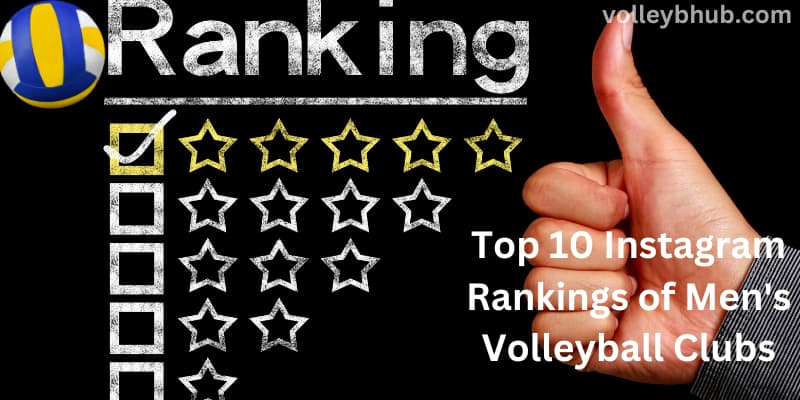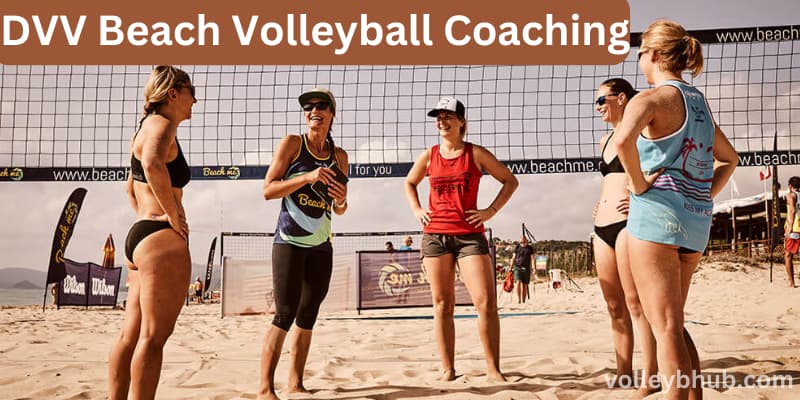
University is a mix of new experiences. You’ll face challenging classes, enjoy lively social scenes, and think about your future career. It’s exciting but can feel overwhelming at times. Your professors will teach you the details of your field. But some of the most important lessons about yourself, the world, and life’s challenges often come from outside the classroom.
Reading widely, not just your textbooks, helps you think critically. It broadens your perspective, sharpens life skills, and sparks inspiration. It’s an investment in your holistic development, preparing you not just for a career, but for a well-lived and impactful life.
Here’s a selected list of books that every university student should think about adding to their reading list. They are grouped by the important areas of growth they cover.
I. Personal Growth & Mindset: Building Your Inner Foundation
University life can be demanding. These books will boost your self-awareness, resilience, and positive outlook. They are key for handling academic stress, social situations, and personal challenges.
1. Atomic Habits: An Easy & Proven Way to Build Good Habits & Break Bad Ones by James Clear
Why read it: Success in university, and in life, often hinges on consistency. Clear provides a simple, science-based way to make small changes that bring big results. It’s not about monumental willpower; it’s about designing your environment and systems for success.
Key takeaways for students:
- Create effective study habits.
- Manage your time wisely.
- Overcome procrastination.
- Build routines that help your studies and personal well-being.
This book is a roadmap to sustained productivity.
2. Mindset: The New Psychology of Success by Carol S. Dweck
Why read it: Dr. Dweck, a famous psychologist, shares important ideas about “fixed mindset” and “growth mindset.” Knowing the differences can change how you face challenges, learn, and deal with setbacks. A growth mindset means believing you can improve your skills with effort and dedication. This attitude is key for ongoing progress.
Key takeaways for students:
- Embrace challenges as chances to grow.
- Learn from your failures.
- Believe in your ability to gain new skills.
This mindset is a direct predictor of academic success and adaptability.
3. The 7 Habits of Highly Effective People by Stephen Covey
Why read it: A timeless classic that offers a holistic approach to personal and professional effectiveness. Covey’s principles are based on universal values. They offer a strong way to prioritise, communicate, and work together effectively.
Key takeaways for students:
- Be proactive.
- Start with the end in mind by setting clear goals.
- Put first things first and prioritise tasks.
- Aim for win-win outcomes in relationships.
- Seek first to understand, then to be understood through empathetic communication.
- Synergise by collaborating effectively.
- Sharpen the saw with continuous self-renewal.
These are foundational life skills.
4. Daring Greatly: How the Courage to Be Vulnerable Transforms the Way We Live, Love, Parent, and Lead by Brené Brown
Why read it: University can be a place of intense pressure, comparison, and a desire to appear perfect. Brown, a research professor, explores vulnerability, courage, shame, and empathy. This book argues that vulnerability isn’t a weakness. Instead, it’s a sign of courage and a way to form real connections.
Key takeaways for students: Embrace imperfection. Cultivate self-compassion. Build deeper connections by being yourself, even when things are tough or uncertain. This is invaluable for mental well-being and forming meaningful relationships.
5. The Alchemist by Paulo Coelho
Why read it: This allegorical novel tells a powerful and inspiring story. It’s about following your dreams, overcoming obstacles, and finding your personal legend. It’s a journey of self-discovery and destiny. It resonates with students as they explore their future goals.
Key takeaways for students:
- Follow your passions.
- Trust your intuition.
- Pay attention to life’s “omens.”
- Remember, true treasure lies within you and in your journey.
II. Critical Thinking & Understanding the World: Expanding Your Perspective
These books will boost your analytical skills. They challenge your assumptions and offer fresh views on complex information and social issues.
6. Thinking, Fast and Slow by Daniel Kahneman
Why read it: This book, by a Nobel Prize-winning psychologist, explores how we think. It looks at two systems: System 1, which is fast and emotional, and System 2, which is slow and logical. Knowing these cognitive biases helps you make better choices and grasp human (ir)rationality.
Key takeaways for students:
- Improve your decision-making.
- Recognise and avoid common logical fallacies and biases.
- Develop a deeper understanding of how our minds and others process information.
This is essential for academic rigor, research, and navigating complex real-world problems.
7. Sapiens: A Brief History of Humankind by Yuval Noah Harari
Why read it: This broad story looks at the whole history of Homo Sapiens, from our beginnings to today, and thinks about what our future might hold. It reveals how large cooperation, common myths like money, nations, and religions, and technology have influenced who we are.
Key takeaways for students: Get a bold view of history, human behaviour, and the strong forces that shaped civilisations. It promotes deep thinking about society, the stories we share, and humanity’s role in the world.
8. Factfulness: Ten Reasons We’re Wrong About the World – and Why Things Are Better Than You Think by Hans Rosling, Ola Rosling, and Anna Rosling Rönnlund.
Why read it: Rosling, a public health expert and skilled storyteller, uses data and visuals. He challenges our negative views on global trends, such as poverty, health, and population growth. He argues that our worldview is often more dramatic and pessimistic than reality, due to cognitive biases.
Key takeaways for students:
- Learn to interpret data accurately.
- Overcome cognitive biases that shape our view of the world.
- Build a hopeful and evidence-based understanding of global progress.
It’s a vital antidote to misinformation.
9. The Demon-Haunted World: Science as a Candle in the Dark by Carl Sagan
Why read it: Sagan, a cherished astronomer and science communicator, champions scientific thinking. He urges us to think critically in a world that often falls for pseudoscience, conspiracy theories, and irrational beliefs. He provides a powerful toolkit for skeptical thinking.
Key takeaways for students:
- Build a solid foundation in scientific methods.
- Learn to tell the difference between verifiable claims and unproven beliefs.
- Value reason and evidence for understanding the universe and tackling misinformation.
III. Career Development & Productivity: Preparing for Your Professional Path
These books offer practical tips for building a successful career, managing time, and navigating the professional world.
10. Deep Work: Rules for Focused Success in a Distracted World by Cal Newport
Why read it: In our busy, connected world, focusing deeply on hard tasks is rare and valuable. Newport argues that “deep work” is essential for producing high-quality output and achieving mastery in any field.
Key takeaways for students:
- Discover practical ways to cut distractions.
- Boost your focus while studying.
- Work more effectively for better academic results.
These skills are directly transferable and highly sought after in any professional role.
11. How to Win Friends and Influence People by Dale Carnegie
Why read it: This book is a long-time bestseller for a reason. Carnegie’s advice highlights key principles of human interaction. It covers effective communication and how to build strong, positive relationships. Soft skills are key for networking, group projects, interviews, and advancing your career.
Key takeaways for students:
- Master active listening.
- Build genuine connections.
- Give constructive feedback.
- Resolve conflicts.
- Influence others ethically.
These are indispensable skills for leadership and collaboration.
12. Designing Your Life: How to Build a Well-Lived, Joyful Life by Bill Burnett and Dave Evans
Why read it: This book from two Stanford design professors uses design thinking to help you build a fulfilling life and career. It encourages students to face their future with curiosity and experimentation. They should be open to trying out different ideas instead of sticking to a strict plan.
Key takeaways for students:
- Discover tools to explore different career paths.
- Overcome analysis paralysis.
- Actively prototype parts of your future instead of feeling stuck with one choice.
It’s an empowering guide for intentional career and life planning.
IV. Financial Literacy & Independence: Mastering Your Money
Understanding personal finance is a crucial life skill that university curricula often overlook. These books will give you a head start on managing your money wisely and building financial independence.
13. Rich Dad Poor Dad by Robert Kiyosaki
It distinguishes between working for money and having money work for you.
Key takeaways for students:
- Understand the basics of financial independence.
- Learn why financial education is important.
- Start thinking like an investor, not just an employee.
It encourages an entrepreneurial mindset towards wealth creation.
14. I Will Teach You To Be Rich by Ramit Sethi
Why read it: A practical, no-nonsense guide to personal finance specifically aimed at young adults.
Sethi gives clear steps for:
- Automating your finances
- Using credit cards wisely
- Paying off debt
- Investing for the long term
- Spending on what matters to you
Key takeaways for students: Develop a straightforward system for managing your money, budgeting effectively, saving, and making smart investment choices early in life. It emphasizes automating good financial habits to achieve financial goals with minimal effort.
V. Fiction & Perspective: Empathy, Society, and the Human Condition
Reading fiction can greatly boost empathy and critical thinking. It also offers deep insights into human nature, society, and moral challenges.
15. 1984 by George Orwell
Why read it: This exciting dystopian novel warns us about totalitarianism, mass surveillance, censorship, and the manipulation of truth. It explores the fragility of individual thought and freedom.
Key takeaways for students:
- Understand political systems better.
- Recognise propaganda and its effects.
- Value independent thought.
- Question authority.
- Protect civil liberties.
Its themes are disturbingly relevant to contemporary discussions about technology and freedom.
16. To Kill a Mockingbird by Harper Lee
Why read it: This classic American novel looks at deep themes like justice, prejudice, compassion, and moral growth. It tells the story through the innocent and observant eyes of a young girl named Scout Finch. It’s a powerful story about empathy and standing up for what’s right in the face of injustice.
Key takeaways for students:
- Build empathy for those who are different from you.
- Question your preconceived ideas.
- Think about important issues like social justice, morality, and bravery against systemic prejudice.
Making Time for Reading in Your Busy University Schedule
With your studies, fitting these books into your life needs a smart plan:
- Read for fun, not stress. Pick books that truly interest you, not ones that feel like chores.
- Leverage audiobooks: Use your commute, gym time, or walks to listen to audio versions of these books.
- Break it down: Even 15-20 minutes of reading a day can lead to finishing a book in a few weeks. Consistency is key.
- Use your resources: You can find many of these books at your university or public library. They often have physical copies or digital versions, like e-books and audiobooks, through apps such as Libby or OverDrive.
- Use breaks: Summer and winter breaks are perfect opportunities to dive into longer reads without academic stress.
Ultimately, the best books for you are the ones that resonate with your personal journey and provide the insights you need most. This list offers a strong starting point for enriching your university experience beyond the confines of your degree.
What’s the first book from this list you’re thinking of picking up



